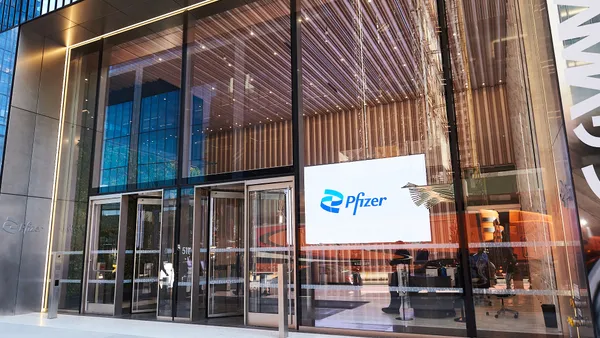There has never been a better time to evolve our pharmaceutical sales model beyond the typical rep/physician interaction. Studies show that in-person sales visits are declining in effectiveness. The top 40 pharmaceutical companies in the United States employ about 80,000 sales reps — doubling since 1996 — but prescribing growth over the same period is just 15%.
Research indicates, however, that e-detailing is increasingly effective. A pilot conducted by Marianne Anderson, marketing manager for Pfizer, shows that 97% of the physicians found the e-detail superior to paper-based details for explaining complex issues. Another study by Lathian reveals that doctors participating in two e-detailing sessions increased brand prescribing by 51% more than would be expected from seasonal variances.
Why are in-person-only visits declining in impact while e-detailing supported calls are increasing in influence? Reps are bored with delivering cookie-cutter presentations and doctors don’t want to hear rehearsed narratives. Recognizing that without proven outcomes they won’t have much income, physicians today want customized solutions that speak directly to their needs.
How can companies incorporate today’s e-detailing technologies into doctor visits to re-vitalize calls and elevate reps from salespeople presenting canned information to consultants solving real-world problems? The answer lies in closed loop marketing delivered via tablets, such as iPads.
Companies are beginning to understand the value iPads add to details. A recent Manhattan Research study shows that 65% of doctors who have seen reps this year have seen their iPads, and reps with iPads are more influential. More than one-third of doctors say they’d be more likely to request samples from an iPad-carrying rep and 29% say they’d be more likely to prescribe.
Maximizing Engagement
How can companies use iPads with closed-loop marketing to transform the detail experience and truly engage providers with their brands? There are 6 keys to success:
1. Ensure practice relevance.
Take a storytelling approach that allows providers to determine the presentation’s direction, so discussions are relevant to each practice’s real-world situation. What doctors prefer about e-detailing is that it lets them select the most pertinent content.
2. Create a dynamic presentation.
Support and enhance messages with graphics and animation that reinforce key points. Leverage the iPad’s functionality to tell the story — letting doctors sweep, swipe, and pinch their way to knowledge.
3. Involve providers in the presentation.
Use surveys, polls, games and other interactive tools to keep physicians interested and engaged and provide real-time learning.
4. Choose the right technology.
Support the experience with a technology platform that facilitates pre-call planning, post-call follow up, meaningful data collection, insightful analyses, and actionable metrics.
5. Include everyone.
Effective interactions can reach beyond the doctor to capture the interest of the entire office, including nurses, physician assistants, and support staff based on their roles and available time.
6. Measure your success.
Know the metrics that matter and measure them to drive the optimal return on your vision. We’ve seen clients achieve double-digit brand preference increases, based on iPad detailing alone.
Improving Patient Support
When creating e-detailing experiences, remember there is one thing all healthcare professionals have in common: the desire to deliver the most effective treatment and most valuable guidance to their patients. Use iPads to partner with providers in improving patient care, education and outcomes by developing assets reps can leave with providers during details. Providers can use these tools with patients during office visits or send them to patients electronically to keep on their smartphones or in their inboxes.
A recent IBM report listing the success factors for e-detailing puts trust at the top. Don’t just distribute “data when and where doctors need it, but help them provide better care with access to drug information they value and trust."
iPads with closed-loop marketing help achieve that goal, letting providers improve care by cascading messages to those who need it most — their patients.
ghg (grey healthcare group), a global healthcare communications leader with headquarters in New York, has offices in the Americas, Europe, and Asia. ghg is a member of the WPP Group, a global provider of advertising, branding, and marketing.
For more information, visit ghgroup.com.











